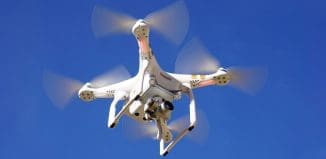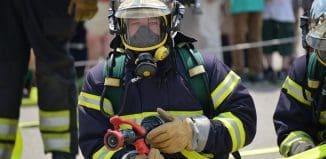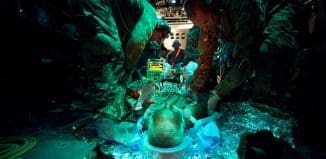DOD civilians can opt out of the Ebola quarantine
This post is also available in:  עברית (Hebrew)
עברית (Hebrew)

Defense civilian workers deployed to West Africa can choose one of two options upon their departure from Ebola-stricken countries, if they do not show any signs of the disease’s symptoms: resume their normal work and life activities with daily temperature and health checks per guidelines from the Centers for Disease Control and Prevention, or participate in the department’s 21-day “controlled monitoring,” which essentially amounts to a quarantine – though the department does not use that word.
The Pentagon last week said all service members returning from West Africa as part of Operation United Assistance had to participate in “controlled monitoring,” even if they did not show symptoms or come in direct contact with anyone suffering from Ebola. The first group of service members subject to the policy now are isolated at a Defense facility in Italy.
The post-deployment guidance for Defense civilians, outlined in an Oct. 31 memorandum from Undersecretary for Personnel and Readiness Jessica Wright, further complicates the government’s approach and policies on monitoring federal employees, troops and volunteer health care workers returning from West Africa.
For example, CDC’s guidelines stipulate a certain level of monitoring based on an individual’s exposure to Ebola and whether that person is showing symptoms, while the Pentagon’s policy for service members returning from Operation United Assistance is far more blanket (like civilians, transient Defense personnel – air crew who travel through Ebola-stricken countries and are not exposed to the disease – are not subject to the 21-day mandatory quarantine). States, including New York and New Jersey, also have been imposing their own restrictions on returning health care workers, drawing criticism from the White House.
Ebola is transmitted through direct contact with an infected person’s blood or bodily fluids. The virus only can be spread after an infected person shows symptoms of the disease, which can manifest from two to 21 days after exposure.
A reporter last week asked President Obama about the various guidance on monitoring and quarantine for those working in Ebola-stricken countries, including the new policy for the military. “Well, the military is a different situation, obviously, because they are, first of all, not treating patients,” he said. “Second of all, they are not there voluntarily. It’s part of their mission that’s been assigned to them by their commanders and ultimately by me, the commander-in-chief. So we don’t expect to have similar rules for our military as we do for civilians. They are already, by definition, if they’re in the military, under more circumscribed conditions.”



























